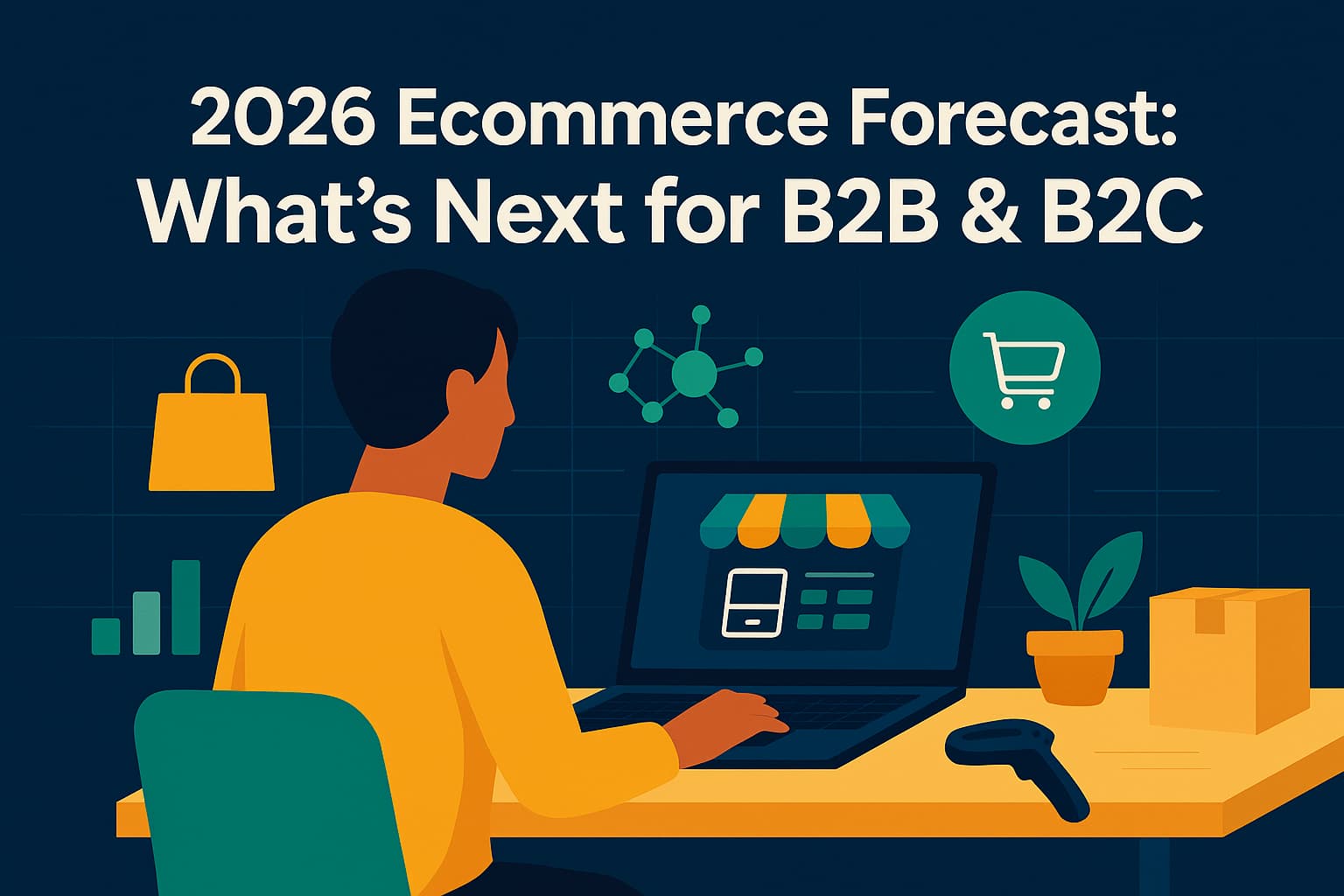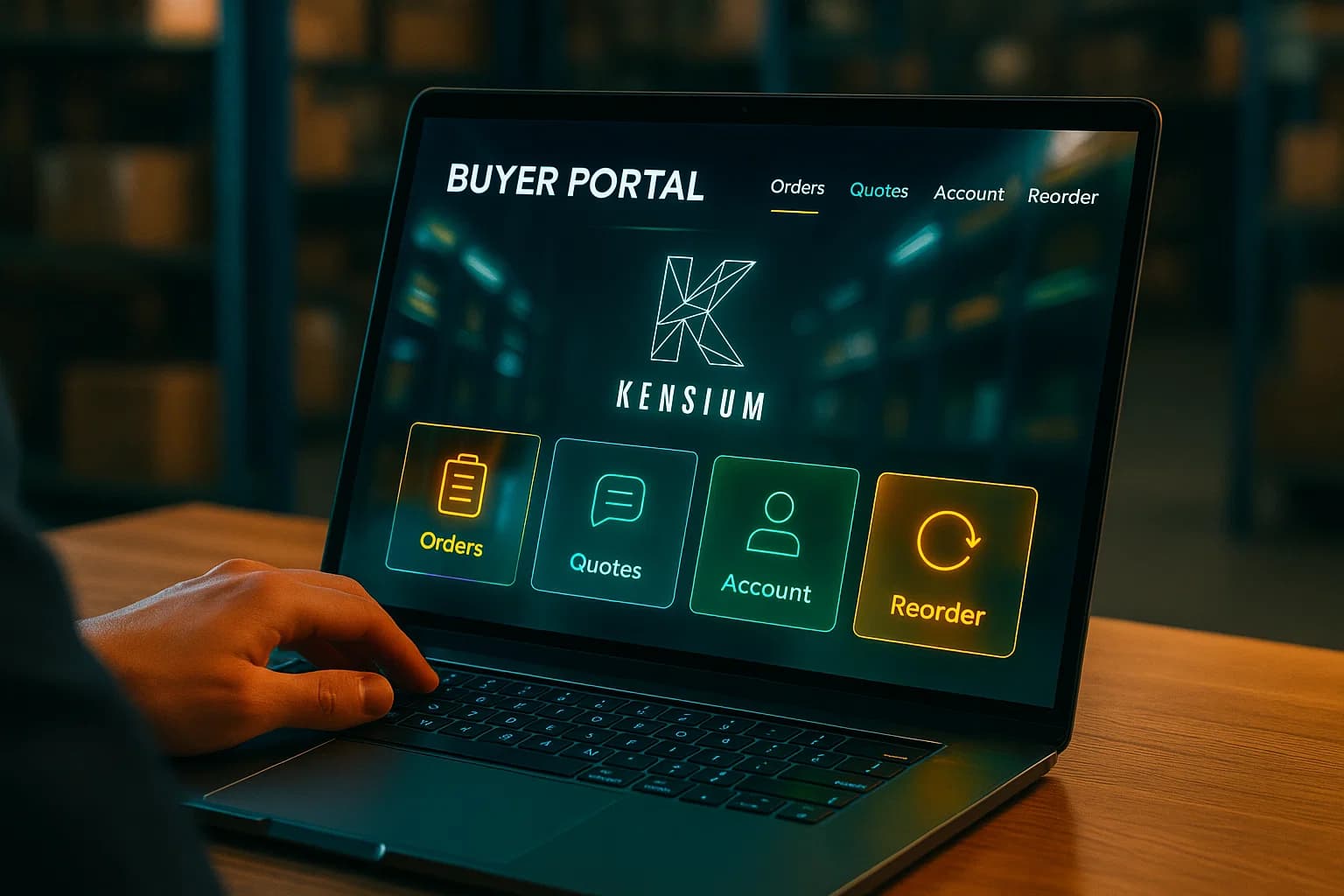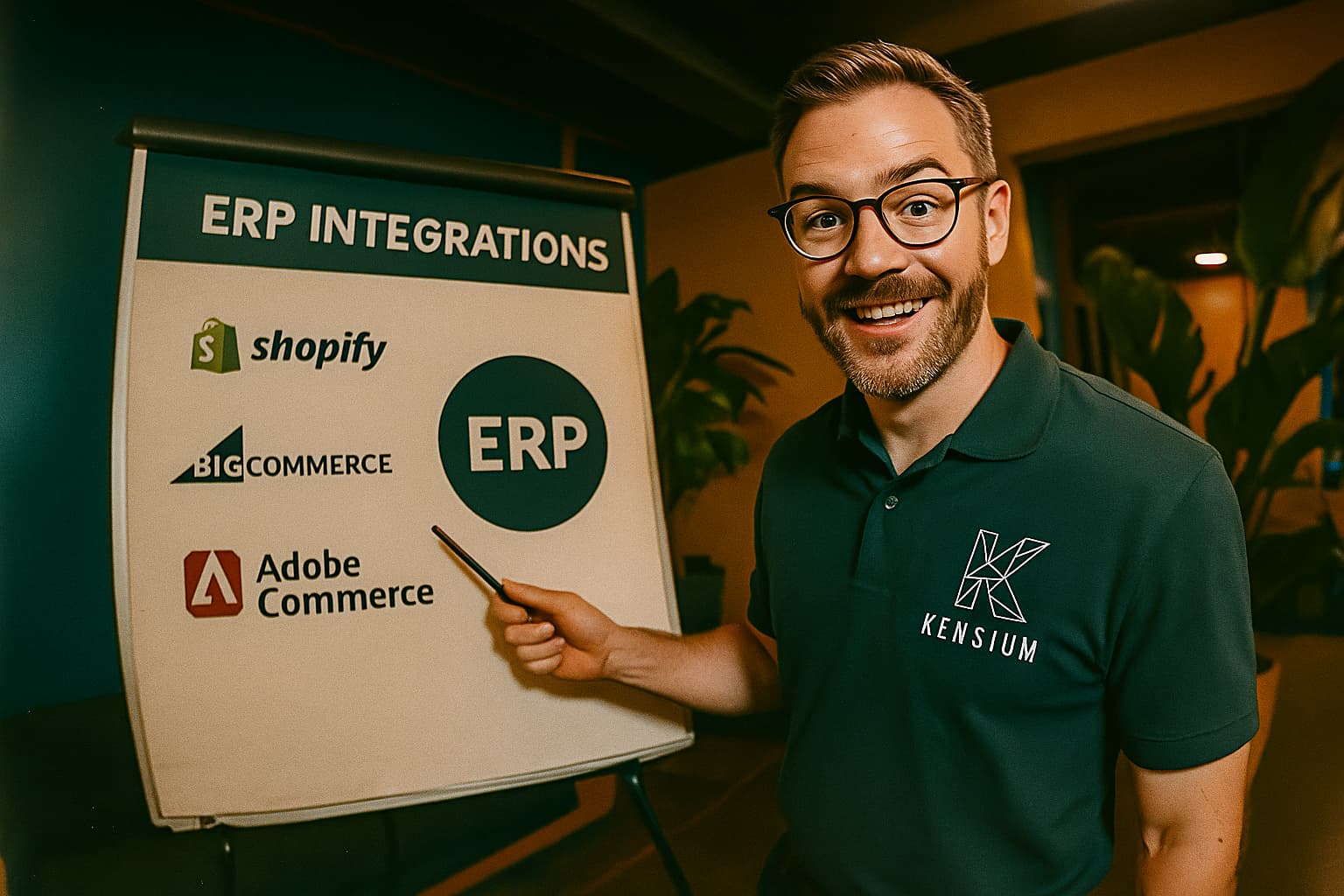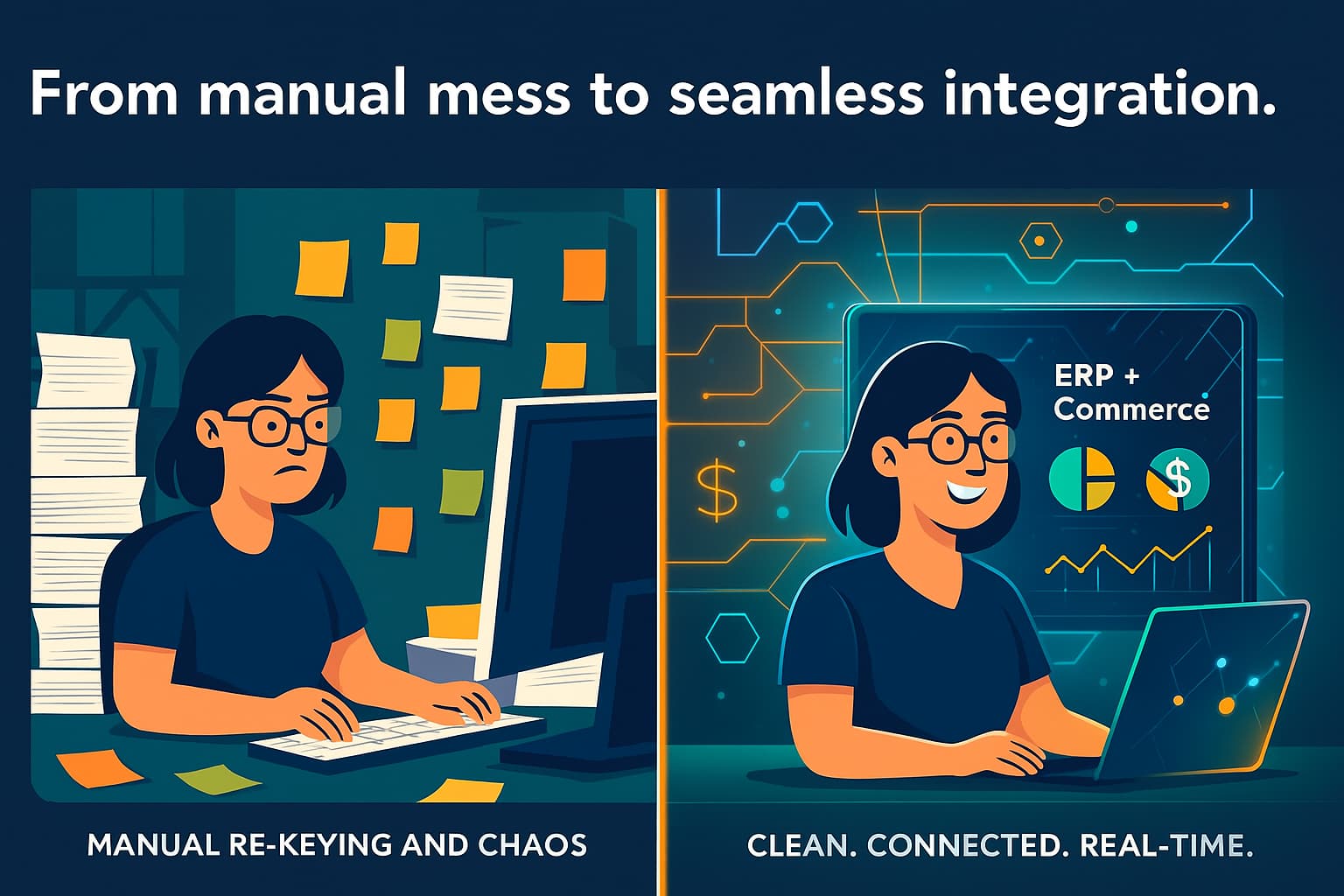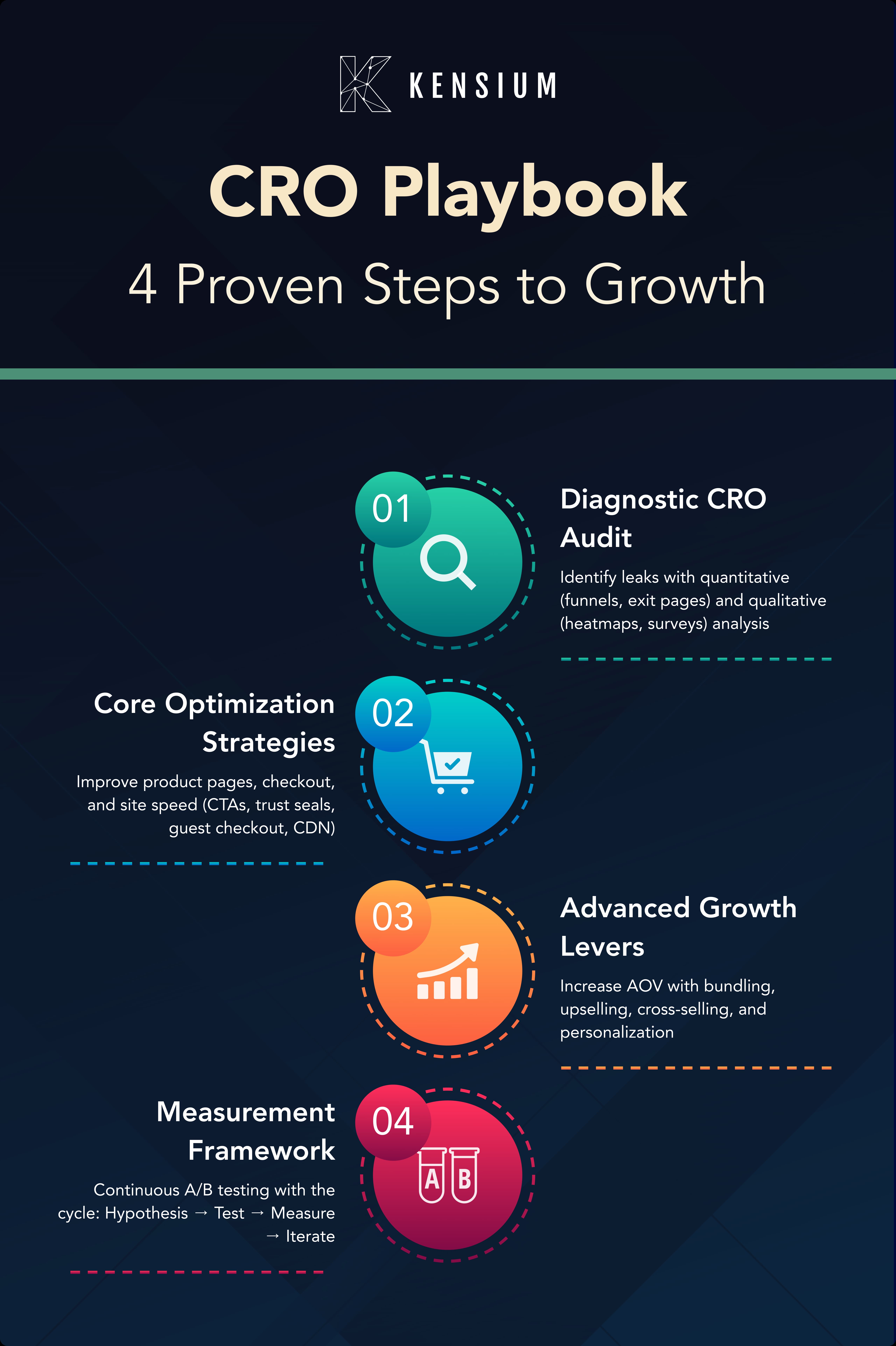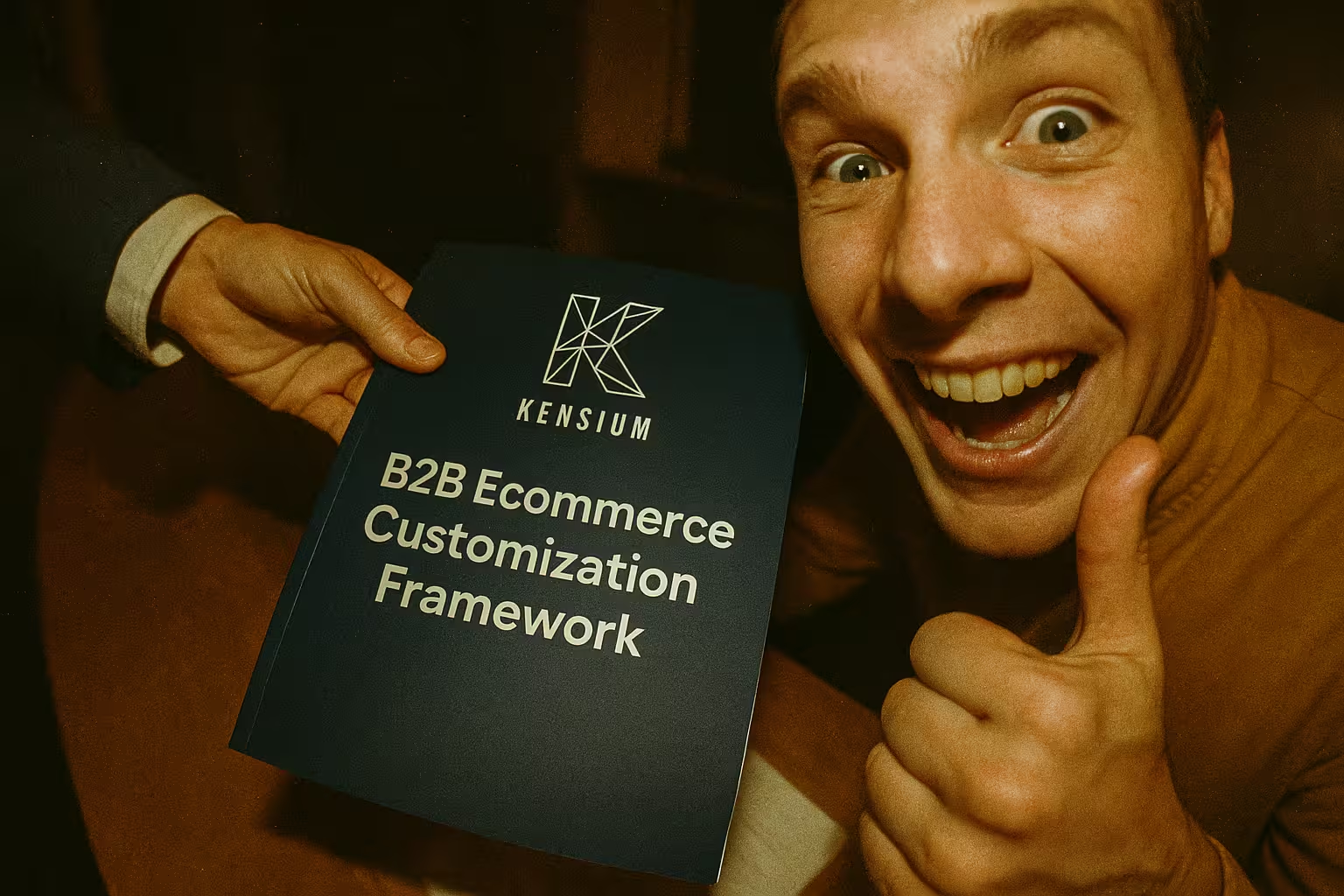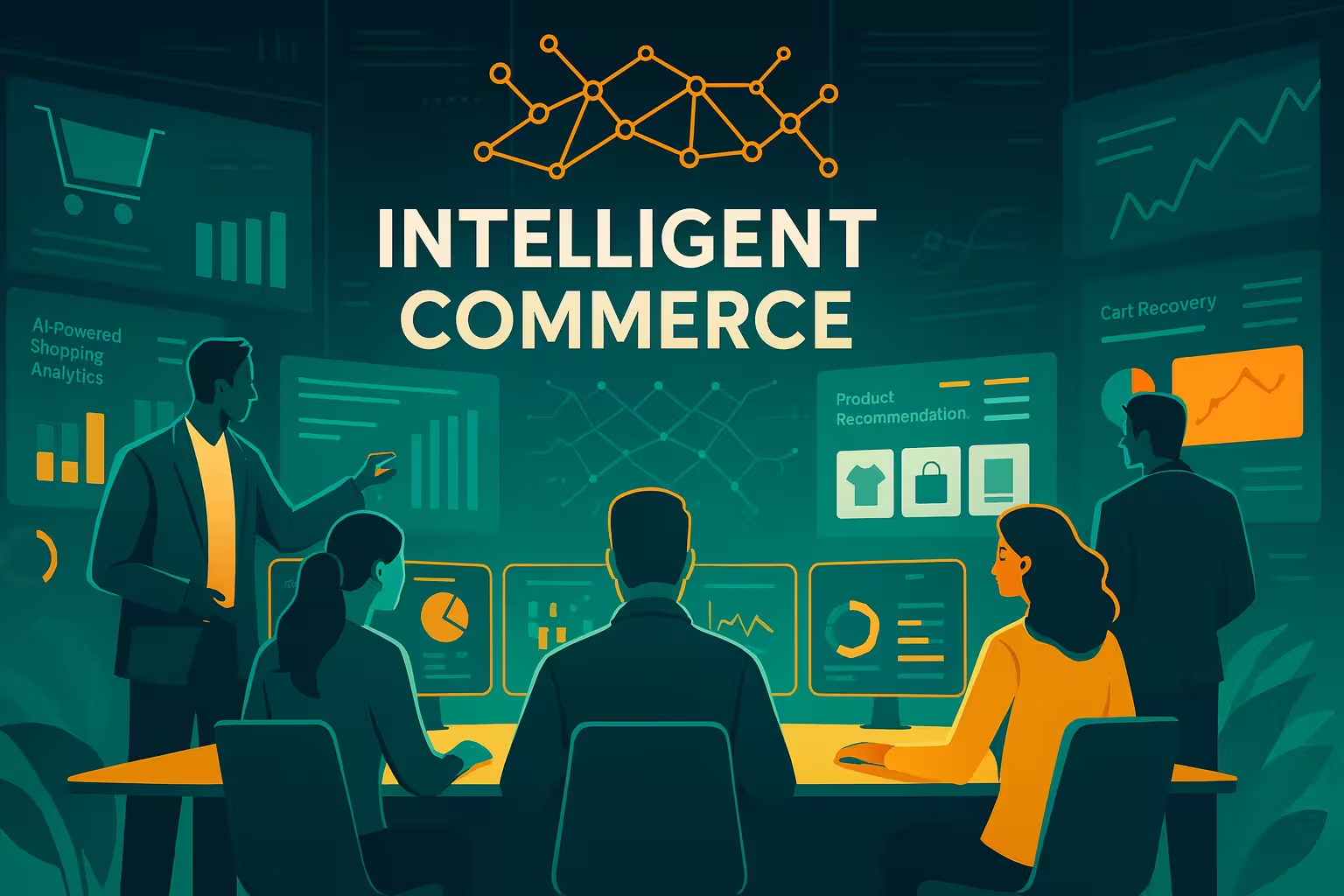
The importance of technology in ecommerce and B2B sales has never been more apparent than now. Thanks to the pandemic, many businesses realized the need for platforms to help build resilience, provide the features necessary to attract and retain customers, and plan for future growth. However, this need creates the question of whether the best platform for ecommerce and B2B sales is an out-of-the-box ready solution or a bespoke platform that combines multiple integrated solutions.
.png)
The first thought may be to find an out-of-the-box solution that solves most of the issues you’re facing. However, not all boxed solutions work for every business. So, let’s look at how out-of-the-box and custom platforms stack up.
Types Of Ecommerce Platforms
Whether the platform is out-of-the-box or customized, it’s essential to understand the different types of ecommerce platforms. Understanding these platforms allows you to narrow your focus and select the right platform for your business. There are three types of ecommerce platforms, and each has its own benefits.
Software-as-a-Service (SaaS)
In the context of web hosting, SaaS is a completely ready-to-go platform. There is no need to deploy and support the code within your website. You are only responsible for your online store's content and visual look. SaaS platforms are cloud-based and usually paid by subscription.
What kind of business would be best served by a SaaS platform? Small, simply structured businesses without a wide range of products. Industries these fit are small businesses and self-employed individuals selling products or services. For example, a yoga instructor offering classes or an organic shop selling fruits and vegetables. In addition, SaaS platforms are suitable for testing your business idea and discovering your niche market.
Open-Source CMS
These solutions can be downloaded for free, but depending on business requirements, they can become expensive depending on the customizations you need. In addition, there are generally additional charges for site updates and support; depending on your business, these can get expensive quickly.
Fully Customized
A tailor-made ecommerce solution is the best option if the above solutions don’t fit your needs. Custom ecommerce platforms provide greater control, flexibility, simplicity, and scalability.
When Does A Custom Solution Make Sense?
Organizations with complex business models, intricate hierarchies, and businesses that sell to other companies often find that many repurposed B2C platforms don’t meet their requirements. As a result, most organizations create workarounds, add additional software, and silo teams and operations when using repurposed platforms. So, instead of building workarounds, organizations build a custom solutions from scratch. These companies see the long-term investment this option provides for their digital business both now and in the future.

Plenty of factors play into deciding to go the custom route and evaluating the type of ecommerce or B2B solution your business needs.
Highly Regulated Industries
Many businesses operate in what is considered a highly regulated industry. For example, if you sell pharmaceuticals, looking at the security and licensing of the purchasing company is crucial. In addition, some products are not approved for all markets in these industries. If you operate within a complex industry with a structure of regulation, a custom ecommerce solution is probably the right way to go.
Complex Corporate Hierarchy
A custom platform is likely your best bet if your business maintains offices in different locations, each responsible for different product offerings or specific customer segments. In addition to the segmentation and geographical hierarchy, these businesses generally have complex internal hierarchies and customer-facing website requirements that are more sophisticated than what an out-of-the-box solution offers.
Multiple Selling Channels
B2B sellers engage with buyers over complex channels. For example, multi-channel businesses may sell B2C and D2C on top of their B2B sales. In addition, companies involved in marketplace management have even more diverse requirements like monetization, onboarding, seller and buyer requirements, and more.
Workflow Management
Businesses that sell products bundled with additional services like installations, consultations, or configurable products require complex ordering or shipping rules that vary from customer to customer. These regulations and configurations may not be easily replicated with an all-in-one solution.
Multiple Business Systems
Most ready-made ecommerce solutions have limited or nonexistent integrations with ERP, PIM, CRM, procurement, accounting, and other systems commonly used to connect multiple business systems. Developing a boxed solution limits the custom integrations necessary, and adding other systems causes a lack of accurate data, inefficient processes, and a lot of money spent trying to create workflows that work.
Offer Alternative Payment Methods
Customers may want to pay through wire transfer, ACH, or installment agreements. Building a custom solution provides multiple payment gateway integrations and offers the control that B2B sellers need. Alternatively, ecommerce merchants need the ability to submit payments by payment applications like CashApp, Zelle, PayPal, or methods like “lease to own” and installments. Unfortunately, ready-made platforms don’t give the control and flexibility to offer these payment options and can stifle sales.
Robust CMS Features
Content management is the heart of ecommerce sales, marketing, and content strategy. Generally, an out-of-the-box solution has a weak CMS or none. Most ready-made platforms can’t integrate with robust CMS applications to meet your needs, especially if you operate within the omnichannel ecommerce market. An Out-of-the-Box Solution Makes Sense When...
Building a custom solution is a significant investment and takes time to develop and deploy. The cost and time to deploy are generally the two most common reasons an organization chooses an out-of-the-box solution. Most ready-made platform providers strive to create world-class products addressing a wide range of use cases but fail to provide robust solutions to meet complex needs.
When An Out-of-the-Box Solution Makes Sense
Building a custom solution is a significant investment and takes time to develop and deploy. The cost and time to deploy are generally the two most common reasons an organization chooses an out-of-the-box solution. Most ready-made platform providers strive to create world-class products addressing a wide range of use cases but fail to provide robust solutions to meet complex needs.

Ready To Go B2B
Out-of-the-Box providers create a solution that is implemented quickly. The platform provides the bare necessities for selling B2B and eliminates the need for software research, development, and testing.
Security And Stability
Ready-made solutions offer security management within the solution, so you don’t have to worry about SSL certificates, fraud protection, and PCI compliance. These built-in features give you and your customers the peace of mind that sensitive data is secure.
Customer Service
Customer service is a powerful factor in many ecommerce platforms. Most out-of-the-box platforms offer phone, live chat, or email support. Some platforms also provide self-service options like video tutorials and knowledge bases.
Shorter Time To Market
As we’ve discussed, a custom ecommerce platform is a significant investment and takes longer to market than ready-built platforms. Months of delays can result in lost opportunities and slower customer acquisition.
Get The Best Of Both Worlds
With over 16 years of experience in the commerce industry, Kensium offers best-in-breed technology and a suite of out-of-the-box tools to provide a complete solution for your business. We work with you to determine the best implementation option for your needs. Kensium prioritizes customer success and happiness, which is why we offer flexible budgets and timelines. Contact us today, and together let’s find the right commerce platform for you.








.png)








